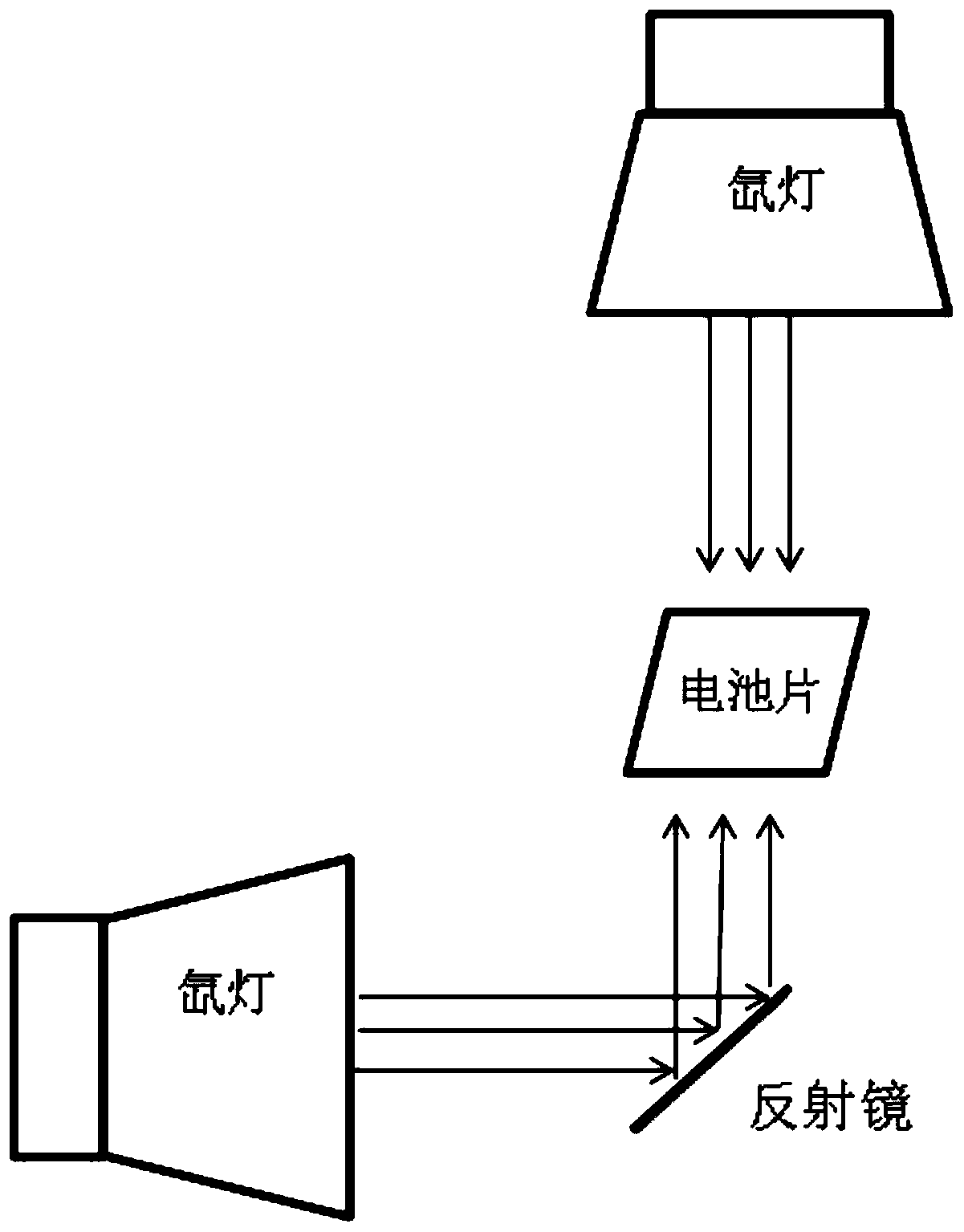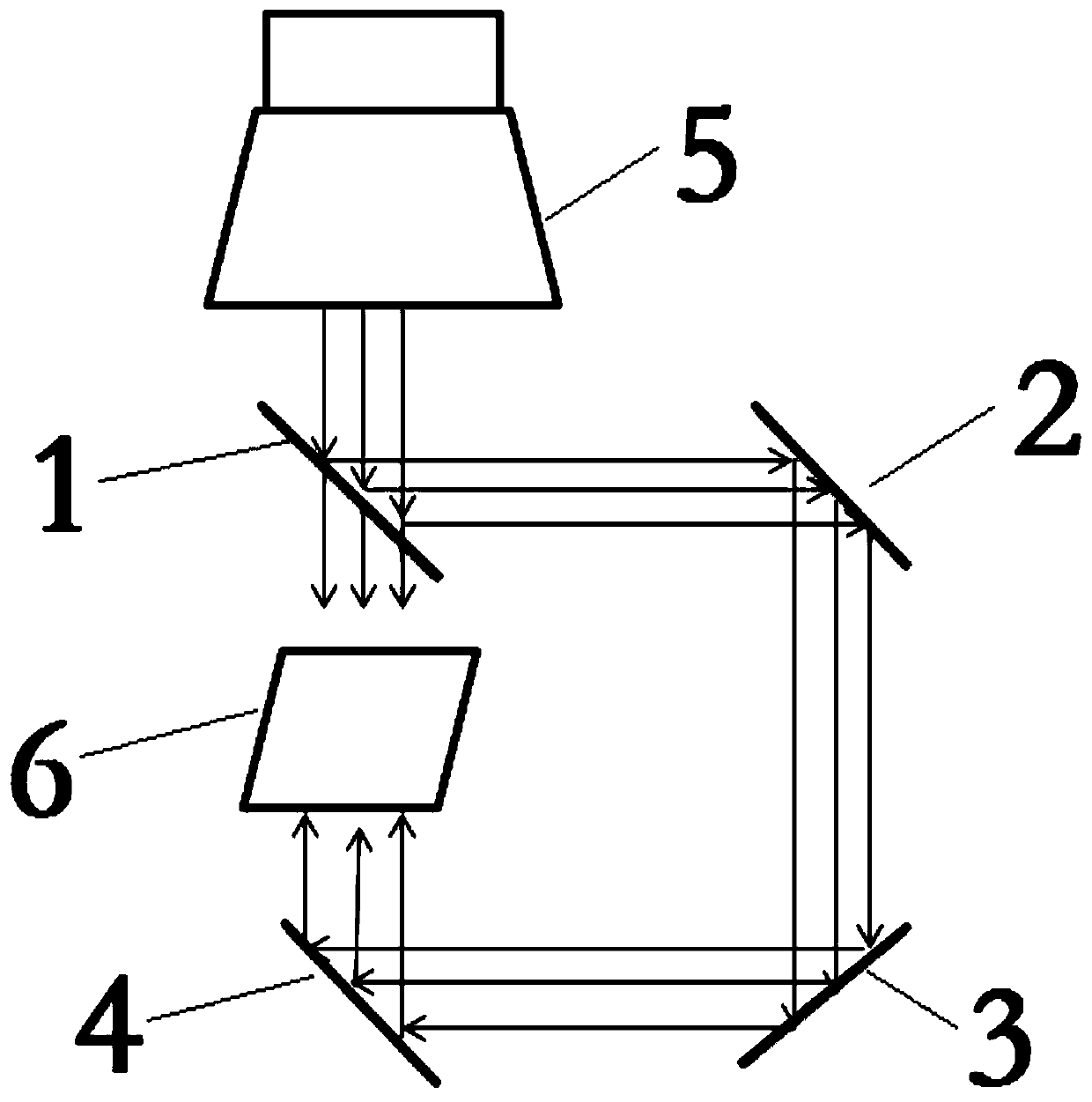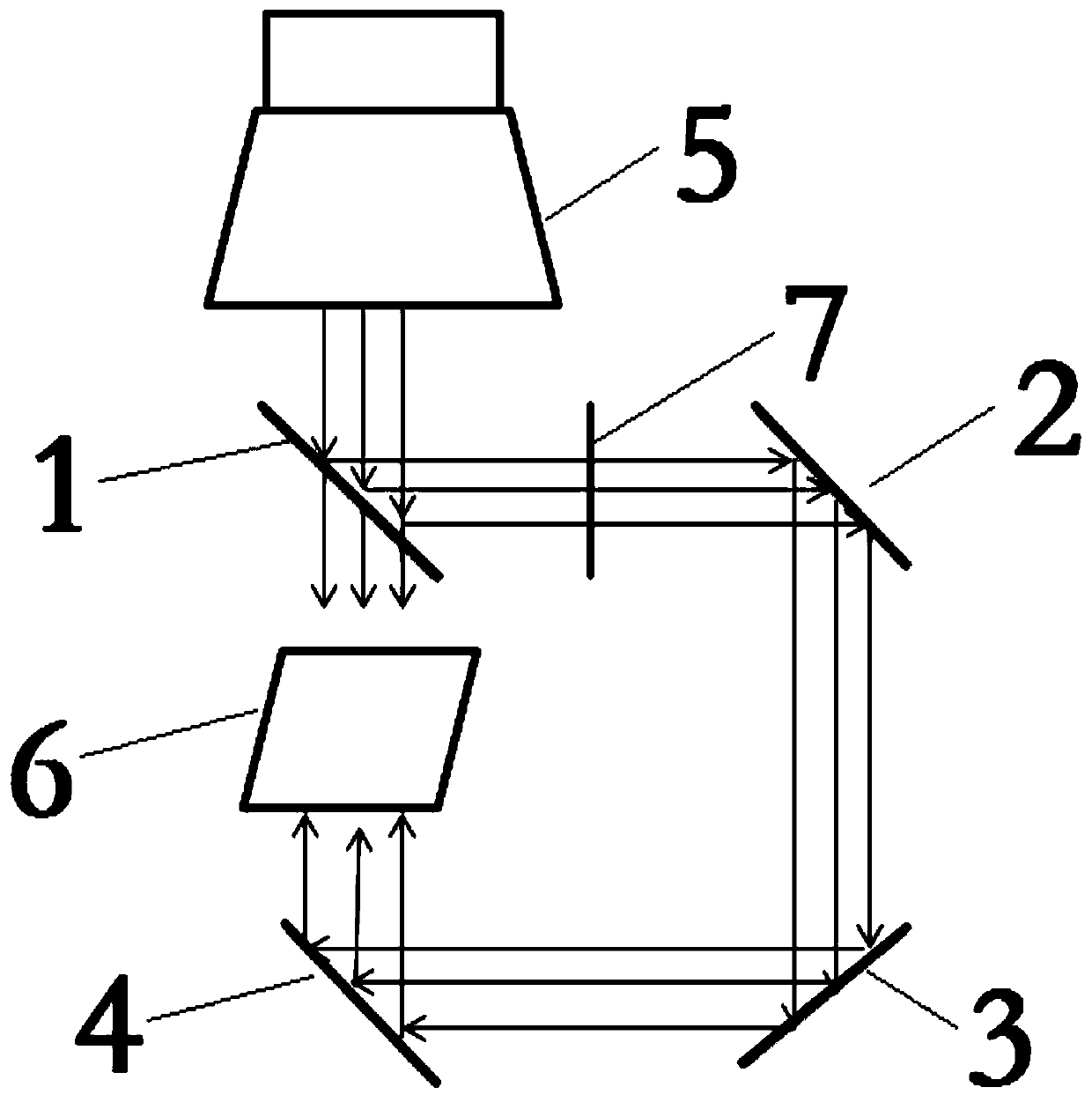Setup for testing bifacial solar cells
A solar cell and double-sided technology, which is applied in the fields of electrical components, photovoltaic power generation, and photovoltaic system monitoring. Effects of interaction, reduced number of uses, accurate test results
- Summary
- Abstract
- Description
- Claims
- Application Information
AI Technical Summary
Problems solved by technology
Method used
Image
Examples
Embodiment 1
[0033] Example 1: Combination figure 2 , an apparatus for testing bifacial solar cells, including a xenon lamp 5,
[0034] The device also includes a first beam splitter 1 arranged directly under the xenon lamp 5, and the mirror surface of the first beam splitter 1 is arranged at 45° relative to the incident light of the xenon lamp 5;
[0035] The device also includes a second reflector 2 whose mirror surface and horizontal position are parallel to the first beam splitter 1, and the oblique top of the first beam splitter 1 corresponds to the reflection surface of the second reflector 2;
[0036] The device also includes a third reflector 3 positioned perpendicular to the second reflector 2, the third reflector 3 is disposed directly below the second reflector 2, and the reflection surface of the third reflector 3 is 45° upward and horizontal. The orientation is opposite to the horizontal orientation of the reflecting surface of the second mirror 2;
[0037] The device also ...
Embodiment 2
[0040] Embodiment 2: According to the device described in Embodiment 1, the first beam splitter 1 can be selected according to the light intensity requirements of the front and back of the battery sheet 6. If required, both the front and back sides use 1000W / m 2 The first beam splitter 1 can use an optical beam splitter with a beam splitting ratio of 50%: the transmittance and reflectivity are respectively 50%, so that half of the light source is transmitted and half is reflected. The device can be used to test the conversion efficiency of the front and back sides of the cell 6, and can also be used to test the power of the front and back sides of the module.
Embodiment 3
[0041] Example 3: Combination image 3 , as in the device described in Embodiment 1, in order to realize the different requirements for the light intensity on the back of the cell 6, a vertical light-transmitting plate 7 is added between the first beam splitter 1 and the second reflector 2, and the light transmission range is 50-95%.
PUM
 Login to View More
Login to View More Abstract
Description
Claims
Application Information
 Login to View More
Login to View More - R&D
- Intellectual Property
- Life Sciences
- Materials
- Tech Scout
- Unparalleled Data Quality
- Higher Quality Content
- 60% Fewer Hallucinations
Browse by: Latest US Patents, China's latest patents, Technical Efficacy Thesaurus, Application Domain, Technology Topic, Popular Technical Reports.
© 2025 PatSnap. All rights reserved.Legal|Privacy policy|Modern Slavery Act Transparency Statement|Sitemap|About US| Contact US: help@patsnap.com



